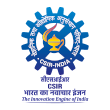Dimethyl Ether (DME) Process Technology – An Ultra Clean Fuel
Dimethyl Ether (DME) Process Technology – An Ultra Clean Fuel
The wheel is said to be mankind’s greatest invention ever. Wheels convert energy derived from primary sources into usable forms of energy. Historically, fuel has played a vital role across civilizations because it is often the primary energy source. Today, different kinds of fuel are used in transport, cooking, electricity, machinery, and so on. But most of our sources of energy are not sustainable. The entire world depends on fossil fuels essentially to meet the requirements of energy. It includes gasoline, coal and petroleum, natural gas etc. Most of these fuels come from primary non-renewable sources, and their negative impacts in terms of greenhouse gas (GHG) emissions are of major concern. For green, and sustainable energy sources, we must shift to new and alternate eco-friendly energy sources.
Dimethyl ether (DME) is a promising fuel that is both sustainable and eco-friendly. DME is a synthetically produced alternative fuel that can be directly used in specially designed compression ignition diesel engines for various purposes. Under normal atmospheric conditions, DME is a colourless gas. It is used extensively in the chemical industry and as an aerosol propellant, solvent, fuel, and refrigerant. DME exhibits comparable calorific value and similarity of its thermal efficiency to traditional fuels; It is a clean-burning fuel with low emission and low particulate matter.
Most importantly, it has already been used as an ozone-friendly aerosol propellant to replace ozone-destroying chlorofluorocarbons (CFCs). Therefore, it can also be used as a refrigerant. Also, it is an essential intermediate for producing valuable chemicals such as lower olefins, dimethyl sulfate, and methyl acetate, which can help to boost the economy of the nation.

DME can be considered as a ‘Second Generation fuel/bio-fuel’ with a slight ethereal odour. It liquefies under pressure (10 bar at 40oC), and these properties of DME are like propane. Moreover, it is relatively inert, non-corrosive, non-carcinogenic, almost non-toxic, and does not form peroxides by prolonged exposure to air. Its physio-chemical properties make it a suitable substitute (or blending agent) for liquefied petroleum gas (LPG, a mixture of propane and butane). Therefore, DME can be used as a fuel in household cooking gas and industries. In many test-runs, a heavy-duty truck performed well under real-world driving conditions, achieving comparable efficiencies to a conventional diesel truck. The results could meet matter emission standards without using the diesel particulate filter.
India spends a large amount of foreign exchange in importing fossil fuels to meet domestic and industrial needs. Diesel is one of the leading causes of air pollution. These fuels are dependent on crude oil and are subject to its volatility in global markets. India is a young country of great aspirations. Our current per-capita energy consumption is the only 1/5th of the global average. Therefore, in the coming decades, India will see exponential growth in energy demand. India must become self-reliant in meeting its energy demands and shifting to cleaner fuels. DME meets the criteria of self-reliance since it can be produced from Indian coal. DME can also be a clean fuel produced from emitted CO2 captured from flue gases or directly from the air. Thus, we will be able to take steps towards AatmaNirbhar Bharat for self-reliance to meet the demands of DME in our country.
CSIR approved a mission mode project - Catalysis for Sustainable Development in 2017. Under this project, CSIR-NCL has developed an indigenous process technology to produce DME from methanol dehydration. The technology is currently ready for pilot plant demonstration at TRL 6-7 level. The indigenously developed process performs better than the known commercial process at a lab-scale level. The catalyst and process cost are economically comparable with the available procedures. Various applications of DME are being developed as it can be blended with LPG of up to 20%. A specially designed burner stove was demonstrated for 100% DME as cooking fuel. Dr. HarshVardhn, the Ho’ble Union Minister of Science and Technology recently launched Aditi Urja Sanch at CSIR-NCL.

DME is expected to contribute very significantly to Pradhan Mantri Ujjwala Yojana Scheme in reducing LPG imports. Clean burning increases fuel efficiency and minimize particulate matter and NOx/Sox pollution. Hence, blending DME with LPG is expected to decrease the pollution level and improve people's health. Smaller productions units of DME can be accommodated in ships and diesel engines/gensets. DME can be used for the entire energy requirements of ships and submarines and would contribute to the Sagarmala programme being an environmentally benign fuel.
CSIR-NCL, in association with the Automotive Research Association of India (ARAI), has tested DME in automobiles by blending it with LPG, and various runs have been carried out on an auto-rickshaw in which a blend of DME and LPG was used as a fuel. This blended fuel has an efficient compression ignition. It has comparatively less NOx, no soot, Sox, and particulate matter when the tests were carried out by ARAI, a leading automotive research institute in Pune.

After a successful DME process demonstration, various chemical industries are interested in scaling up and commercializing technologies by signing an MoU with CSIR-NCL. Engineers India Limited (EIL) and CSIR-National Chemical Laboratory (CSIR-NCL) have signed a Memorandum of Understanding (MoU) and a Memorandum of Agreement (MoA) for the development and commercialization of Technologies and establishing contacts with major companies like OMC’s for larger production units of DME in India. The think-tank of our nation, NITI AAYOG, has identified DME technology as a promising and important technology concerning energy security, which needs to be commercialized towards energy independence and a clean atmosphere and reduced DME import from other countries. Thus, DME can be considered the future of the energy sector, transforming the lives of our people.
Dr. T Raja
CSIR-National Chemical Laboratory

 Pensioners Corner
Pensioners Corner Screen Reader Access
Screen Reader Access Skip to main content
Skip to main content























